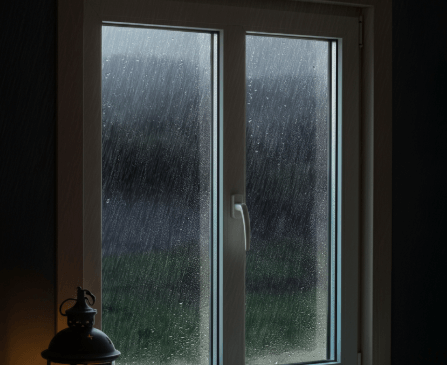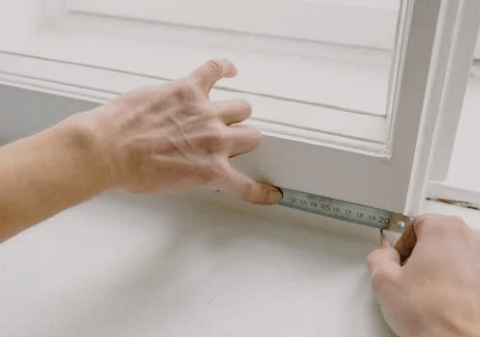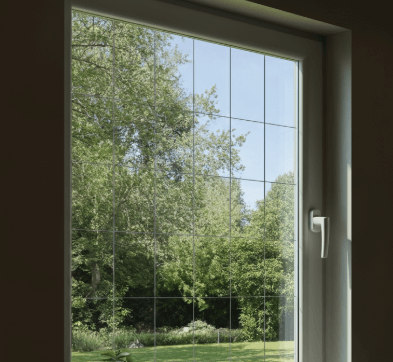What is the glass thickness on impact windows? The glass thickness on impact windows typically ranges from 7/16 to 9/16 inches, providing optimal protection and durability. In today’s real estate market, the emphasis on safety and performance is more significant than ever. In this blog post, we’ll explore how glass thickness on impact windows affects safety and performance and why it should matter to you. By the end of this article, you’ll have a comprehensive understanding of how to choose the right glass thickness for impact windows, the benefits of thicker glass, and practical tips for making informed decisions.
Steve Daria and Joleigh, renowned real estate investors, always emphasize the importance of glass thickness on impact windows for safety and durability. Impact windows with thicker glass provide enhanced protection against extreme weather conditions and potential break-ins. Understanding this crucial aspect can significantly influence properties’ market value and desirability in hurricane-prone areas.
What Are Impact Windows?
Impact windows, also called hurricane windows, are specially made to withstand extreme weather conditions, such as hurricanes and strong winds.
These windows are built with reinforced glass that can resist shattering upon impact.

How They Differ from Regular Windows
Unlike regular windows that can easily break and become hazardous, impact windows are engineered to protect against debris and high-pressure winds.
Their unique construction helps maintain the integrity of your property during adverse weather conditions.
Common Uses in Real Estate
Impact windows are popular in coastal regions where hurricanes are frequent.
However, they are increasingly being adopted in urban areas for their added security benefits, noise reduction, and energy efficiency.
Importance of Glass Thickness on Impact Windows
Explore the importance of glass thickness on impact windows to ensure safety and durability.
Safety Considerations
The thickness of glass in impact windows is crucial for ensuring safety and protection.
Thicker glass is inherently more resilient to impact and force, which enhances its ability to withstand serious weather conditions such as hurricanes or strong winds.
This resilience not only reduces the likelihood of breakage but also minimizes the risk of debris entering the building during storms, thereby enhancing overall safety for occupants.
Performance Metrics
When evaluating impact windows, glass thickness is a critical performance metric to consider.
Thicker glass not only improves insulation by reducing heat transfer and maintaining interior comfort levels but also enhances the window’s ability to block external noise.
This attribute is particularly beneficial in urban or noisy environments, where minimizing sound intrusion is a priority for homeowners.
Legal Standards and Regulations
There are specific building codes and rules that dictate the minimum glass thickness for impact windows.
These standards are put in place to ensure that the windows can provide adequate protection during severe weather events.
Get An Offer Today, Sell In A Matter Of Days…
Benefits of Thicker Glass on Impact Windows
Here are the benefits for choosing a thicker glass on impact windows:
Enhanced Security
One of the primary benefits of having thicker glass on impact windows is enhanced security.
Thicker glass is harder to break, which deters burglars and provides peace of mind.
Improved Energy Efficiency
Thicker glass contributes to better insulation, reducing heat transfer between the inside and outside of your home.
This improved energy efficiency can lead to decreased utility bills and more comfortable living surroundings.
Noise Reduction
For properties located in noisy areas, thicker glass can significantly reduce external noise.
This makes the interior quieter and more serene, adding to the overall comfort of the home.
How to Choose the Right Glass Thickness
When selecting the appropriate glass thickness for impact windows, several factors come into play:
Geographic Location
In areas susceptible to hurricanes or extreme weather conditions, thicker glass in impact windows is often recommended to provide optimal protection against high winds and flying debris.
This added thickness helps minimize the risk of glass breakage and enhances the window’s ability to withstand the forces exerted during storms.
Building Type
Residential buildings may have different requirements for impact windows compared to commercial properties.
While residential buildings prioritize factors like energy efficiency and noise reduction, commercial properties may prioritize security advantages and compliance with building codes and regulations.
Budget
Thicker glass options for impact windows can be more expensive than standard options, so it’s important for homeowners and builders to balance cost considerations with their specific needs for safety, durability, and performance.
Assessing the benefits of thicker glass in terms of enhanced protection and longevity can help justify the initial investment in impact-resistant windows.
Recommended Thickness for Different Scenarios
While the ideal thickness can vary, a common recommendation for hurricane-prone areas is at least 7/16 inch.
For general safety and noise reduction, 5/16 inch to 3/8 inch can be effective.
Consulting with Professionals
It’s always a good idea to consult with a professional when choosing glass thickness.
They can give detailed suggestions based on your specific needs and local building codes.
Installation Tips for Impact Windows
Explore these tips for installing impact windows and ensuring safety.
Pre-Installation Preparations
Before installing impact windows, ensure that the window frames are in good condition and can support the new windows.
Measure the dimensions accurately to avoid any installation issues.

Proper Installation Techniques
Proper installation is important for the effectiveness of impact windows.
Make sure to follow the manufacturer’s guidelines and use the appropriate tools and materials.
A poorly installed window can compromise its integrity and performance.
Post-Installation Checks
After installation, inspect the windows to ensure they are securely fitted and functioning correctly.
Check for any gaps or misalignments that could affect their performance.
Conclusion
In conclusion, glass thickness on impact windows is a critical factor that significantly impacts safety and performance. Whether you’re a land seller, property seller, real estate investor, house buyer, or land buyer, understanding the importance of glass thickness can help you make more informed decisions.
By choosing the right thickness, you can enhance security, improve energy efficiency, and reduce noise, making your property more comfortable and valuable. Don’t hesitate to consult with professionals and consider the specific requirements of your location and property type.
**NOTICE: Please note that the content presented in this post is intended solely for informational and educational purposes. It should not be construed as legal or financial advice or relied upon as a replacement for consultation with a qualified attorney or CPA. For specific guidance on legal or financial matters, readers are encouraged to seek professional assistance from an attorney, CPA, or other appropriate professional regarding the subject matter.

